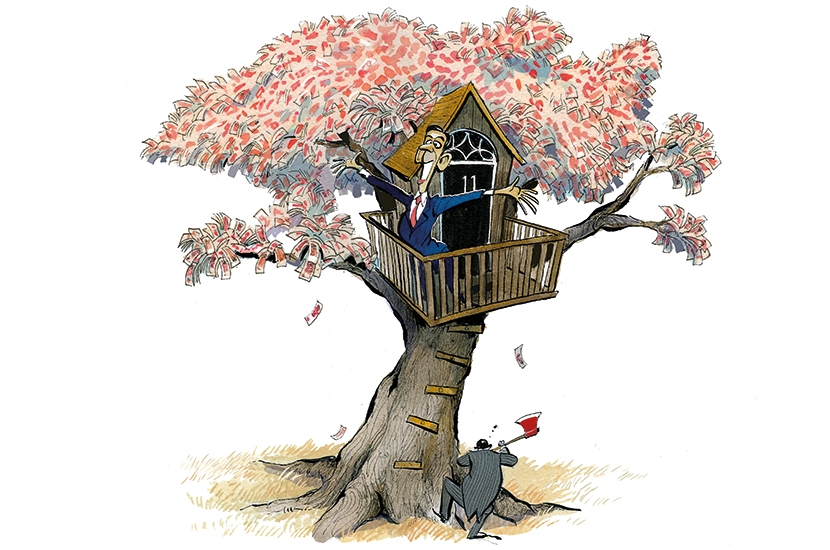More help for bars and restaurants. Grants for businesses that are forced to close. Additional funding for the self-employed. The Chancellor Rishi Sunak has started shaking the magic money tree again, promising extra assistance to keep the economy alive during a second wave of Covid-19. There is a problem, however, and as the Chancellor runs through rescue package after rescue package it is becoming increasingly apparent. While Sunak is very good at coming up with wheezes to get through the next few weeks there isn’t yet much sign of a plan for a post-Covid economy – and that is increasingly what is needed.
The problem is not the measures themselves. It is the lack of a strategic plan
With infections rising again, and with up to half of the country, as measured by GDP, in at least Tier 2 restrictions, Sunak had no real choice but to come up with yet another round of help. Today’s statement significantly increases the amount of wage support for businesses if they have to close temporarily or face restrictions on their traffic, it offers cash grants to companies in Tier 2, and extra help for the self-employed. It is not as generous as the round after round of support that was offered in the spring, but it also puts a lot more money on the table than was originally planned for the autumn. Some people will argue Sunak should have done more, others less. He has struck a reasonable balance between the two.
The problem is not the measures themselves. It is the lack of a strategic plan. In the spring, it was still possible to imagine the epidemic would just last for a couple of months more at most. There was a respectable argument for closing as much of the economy down as possible, putting companies on life support, workers on furlough, and keeping teams intact, ready to be brought back to life once the virus was under control. It was expensive, but it made sense. In October, that no longer looks as credible. Lockdowns, whether national or regional, can shift the pattern of infections, but they can’t defeat Covid-19, and until we get a vaccine or hit herd immunity, a normal economy is not coming back.
In truth, a post-Covid economy will eventually emerge. What will that look like? It will have far less office space, and a lot more home working. It will have far fewer bars and restaurants, and a lot more streaming services and home entertainment. It will have fewer retail parks and emptier high streets, but it will also have a lot more building work, and, in time, more and bigger homes. It will spend less on ridiculously subsidised commuter trains and busses, but more on reliable high-speed broadband. And it will have fewer workers in large corporations, but a lot more self-employed gig workers and a new class of legally-protected home staff.
The economy is already adapting to Covid, because that is that is what free market economies do. None of that, however, is getting any help from a Chancellor who mainly seems interested in getting through until the next crisis hits. Right now, Sunak needs to focus less on short-term support, and more on summoning the post-Covid economy into life – because that is the only one that will be sustainable in the medium-term.






Comments